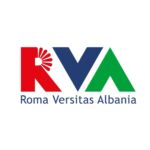Most of the respondents are not satisfied with the online learning process, whereas 23 of them seem neutral. Only five (5) feel satisfied with the online education system. Online learning has a few drawbacks. For instance, Students encounter tech and internet connection breakdown. A few of the students complain about not doing work lab, which is required for their profiles. Online learning is not as dynamic as in physical auditor, and it is challenging and exhausting online.
On the other hand, professors are not responsive enough to online platforms. Some students state that some teachers do not take teaching seriously or cannot explain aspects or concepts in distance learning. Sometimes, teachers and lecturers do not enter on time in the zoom, and students have to wait. Besides, group work is another issue that is not done correctly. Also, students are not satisfied with the performance of their teachers.
Moreover, some students complain that their education requires more practice than theory. Additionally, they state that they receive too much information and cannot focus entirely on the learning process, particularly from smartphones. That mentioned, there are many of the students that share the same tech with their siblings. Sometimes, they even miss the virtual classes.
Nevertheless, 23-28 out of 74 students says that online or combined teaching is not the best alternative, but a remedy to not skip the school.
To sum up, combined learning, according to a few students, has advantages and disadvantages. One of which has shortened or cut the expenses for rent, transport, and stationary. However, on the other hand, time dedicated to the students is not satisfactory. Lastly, it penalizes students that need to use labs.
Recommendations from students
- Mentoring and tutoring classes.
- Advocacy to the local authorities to build the damaged school in SHKOZET District due to the earthquake.
- Training and workshops to guide students toward career and the labour market.
- Tech equipment (Lap-Top, Tablet)
- Financial support (stationery, books, transport, rent, printing, food packages)
References
Institute of Romani Culture in Albania. (2020). Roma Access to Basic Social Services in Albania. Gjetur në https://portavendore.al/wp-content/uploads/2021/01/Survey-at-a-Glance-2020-Roma-Access-to-Basic-Social-Service-in-Albania-English-Version_compressed.pdf: https://portavendore.al/wp-content/uploads/2021/01/Survey-at-a-Glance-2020-Roma-Access-to-Basic-Social-Service-in-Albania-English-Version_compressed.pdf
MINISTRIA E ARSIMIT, SPORTIT DHE RINISË AGJENCIA E SIGURIMIT TË CILËSISË SË ARSIMIT PARAUNIVERSITAR. (2020, 09 29). Ministria e Arsimit, Sportit, dhe Rinise. Gjetur në https://arsimi.gov.al/urdher-nr-293-date-29-09-2020-per-caktimin-e-dates-se-fillimit-te-vitit-akademik-2020-2021-ne-institucionet-e-arsimit-te-larte-2/
Ram Hadroj. (2020, Dhjetor). Ndikime dhe pasoja e COVID-19 në arsimin e fëmijëve dhe të rinjve Rom në Shqipëri. Gjetur në https://vishkepucetemia.wordpress.com/2021/02/08/ndikimet-pasojat-e-covid-19-per-komunitetin-rom-ne-shqiperi-nje-permbledhje-punimesh-kerkimore/

